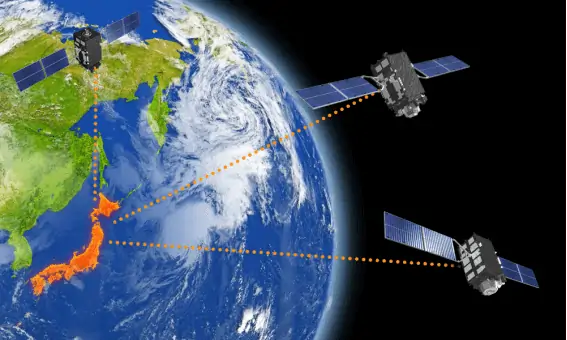Septentrio, a developer of high-precision GNSS technology for UAVs (unmanned aerial vehicles), drones and robotics, has partnered with Japanese system integrator CORE to develop a GNSS receiver that can utilize the Centimeter Level Augmentation Service (CLAS) of Japan’s Quasi-Zenith Satellite System (QZSS). CLAS is a self-augmentation GNSS correction service that allows RTK centimeter-level positioning all over Japan, without the need for a ground link and with convergence times of less than a minute.
The new receiver will be based on Septentrio’s multi-frequency GPS/GNSS AsteRx4 receiver, which already tracks the L6 signal and can use QZSS for increased positioning availability and reliability. Septentrio will take advantage of CORE’s knowledge and experience to implement CLAS on the new solution.
The receiver will also incorporate Septentrio’s Advanced Interference Mitigation (AIM+) technology, which offers protection against electromagnetic waves that can interfere with GPS and GNSS signals in busy urban environments. The use of AIM+ provides faster set-up times and robust continuous operation.
Takahiro Yamamoto, Director of GNSS Solution Development Center at CORE Corporation, commented: “QZSS Centimeter Level Augmentation Service has been limited to evaluation phase up till now. Realizing CLAS on Septentrio’s multifunctional, high-quality, cost-competitive platform allows our customers to finally use QZSS in their applications. Galileo High Accuracy Service (HAS) is expected to start in 2020, so the demand for high accuracy GNSS receivers is also expected to increase. By complementing CORE’s QZSS technology and Septentrio’s Galileo technology, we can provide competitive products to global customers.”
Neil Vancans, Director of Global Sales at Septentrio, said: “CLAS is a first-of-its-kind service which will contribute to the proliferation of high accuracy GNSS applications in Japan. Europe is also taking similar initiatives with their Galileo High Accuracy Service (HAS). We are excited to enter into an agreement with CORE to enable the support of CLAS on our receivers. CORE’s expertise allows us to get the best out of CLAS and to follow new developments in QZSS evolution. Moreover, CORE’s expertise in system integration will allow us to tackle new markets in Japan.”



















